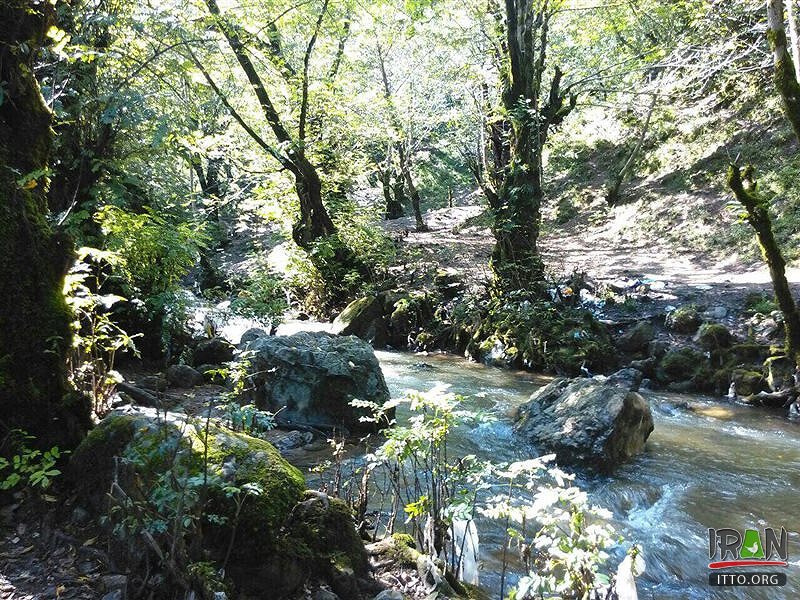Tِhe Poet: Abu al-Tayyib Ahmad Al-Mutanabbi (d. 965 CE / 354 H)
The Gardens of Bovan had a reputation in the medieval world. Persian geographer Zakariyya Qazwini (d. 1283 CE / 685H) mentioned its pristine beauty, and charm, having many fruit trees, gushing waters, and varieties of bird species. Abu Bakr al-Khwarizmi (d. 993 CE / 383 H), a contemporary of Mutanabbi, mentioned the site as one of the top four worldly gardens (as we find reported in Yaqut’s Mu`jam al-Buldan), along with Damascus’ Ghouta, Samarqand’s Safad, and Ubulla Island.
One of Mutanabbi’s most famous poems contains an 18-line description of the Bovan gardens, as a prelude to a 48-line elegy to Abu Shuja` (whom I discuss in the next paragraph). The Gardens of Bovan (Bawwan) are located in what is today Iran’s Mamasani County, in Fars Province. Nurabad is today the capital of Mamasani County, and contains the ruins of Nawbandijan [Daniel T Potts, Nomadism in Iran: From Antiquity to the Modern Era, 166]. Mutanabbi mentions Nawbandijan in the poem, but for exigencies of rhyme and meter, I substituted it Nurabad in my translation below.
Abu Shuja, the subject of the elegy, refers to Abu Shuja` Fatik al-Rumi (known as al-Majnun). Fatik was captured from his native Anatolia as a child, along with his two siblings. He was enslaved, and taken to Palestine where he grew up. The Ikshidid commander Muhammad Ibn Tughj in turn seized him from his master, following which Fatik lived with Ibn Tughj as a freeman. There he befriended Kafur, another eunuch who has also been freed by Ibn Tughj. Following Ibn Tughj’s death, Kafur’s rose to power as de facto ruler, and Fatik retired to Fayyum where he had an estate. Fatik had a reputation for generosity. Mutanabbi was initially hesitant about composing an elegy to Fatik, out of fear of the jealousy of Kafur. After Fatik sent a gift of 1,000 dinars and other presents to Mutanabbi, the latter sought Kafur’s permission to write poetry praising Fatik. Kafur reluctantly gave permission, and so Mutanabbi went ahead and composed the elegy.
What follows is my translation (in rhymed pentameter couplets) of the first 19 lines of the poem, containing Mutanabbi’s description of Bovan Valley. The original Arabic of the poem can be found here.

PICTURE CREDIT: Iran Tourism and Touring Organization (original here) The picture at the top of the page is from the same organization.
This vale resort compared to all the rest, Like spring among the seasons, is the best. But this Arabian lad’s a stranger there, His skin tone, script and tongue perceived as rare. This park which if King Solomon traversed, He might not fathom these jinn-men’s converse. The vale entranced our knights and mounts daylong, But for their virtue, they would tarry long. In early morn, behold the boughs’ refrain: Sunlight as pearls released on my steed’s mane! The self-same boughs provided me with shade, And veiled the sun, as I traversed the glade. The sun from midst the trees tossed coins of gold, Coins which alas my fingers can’t enfold! Hark! Thin-skinned fruits are beckoning: draw near To juice that, gobletless, hangs in mid-air! This gorge whose rocks with melody do charm Like bangles jingling on a songstress’ arm. In Ghouta would a skilled groom take my steed, And then in stoneware tasty treats me feed. My host would then a hearty fire stoke With aloeswood, exuding fragrant smoke. His gracious welcome leaves you with no care, So when it’s time to leave, you do not dare. These pleasant memories which I have had Remain as I proceed to Nurabad. The cooing of the grey-black doves therein Is answered by girls’ songs in unison. The valley-folk’s speech needs translation more Than doves whom we’ve heard sing and mourn since yore. Akin in unintelligibility, Yet, oh, so different in reality! In Bovan Vale, the protest of my steed: From this delight are we to war proceed? Your father Adam when he first transgressed Taught you from gardens to be dispossessed I said: for friends and places do not pine Abu Shuja` is consolation fine.

